Vegan Globetrotter is supported by our audience. When you purchase through one of our links, we may earn a small affiliate commission. As an Amazon Associate I earn from qualifying purchases. Your cost is not affected.
==================
What is the Anti-Inflammatory Diet is a question most people want to know the answer. An anti-inflammatory diet for vegans is a plant-based eating plan designed to reduce systemic inflammation in the body. This type of diet focuses on eating foods that are rich in antioxidants, phytochemicals, and nutrients that support the immune system and may help to mitigate chronic inflammation. Vegan diets already exclude animal products, which are considered pro-inflammatory by some nutrition experts, making this approach naturally inclined towards an anti-inflammatory lifestyle.
What Is the Anti-Inflammatory Diet for Vegans? A Focus on Whole Foods for Optimal Health
Again the answer to what is the anti inflammatory diet for vegans emphasizes the consumption of whole foods such as fruits, vegetables, legumes, nuts, and seeds while avoiding processed foods and those with added sugars and unhealthy fats. It’s not just about eliminating foods that can contribute to inflammation, but also about incorporating nutrient-dense plant-based options that can provide a wealth of health benefits. The goal is to nourish the body with foods that can help in managing health conditions associated with inflammation, like arthritis and heart disease, as well as supporting overall health and well-being.

Key Takeaways
- An anti-inflammatory vegan diet prioritizes whole, plant-based foods and eliminates pro-inflammatory animal products.
- Key components include fruits, vegetables, whole grains, nuts, seeds, and legumes.
- Avoiding processed foods, added sugars and unhealthy fats is essential for minimizing inflammation.
What Is the Anti-Inflammatory Diet
The anti-inflammatory diet centers on consuming foods that reduce inflammation within the body, emphasizing the importance of plant-based selections, particularly for vegans.
Key Principles of Anti-Inflammatory Eating
1. Emphasize Plant-Based Foods: Vegetables, fruits, whole grains, and legumes form the foundation, known for their high anti-oxidative properties and essential nutrients.
2. Incorporation of Omega-3 Fatty Acids: Sources such as flaxseeds, chia seeds, and walnuts are integral for vegans to obtain necessary fats that combat inflammation.
3. Limiting Processed Foods: A significant reduction in the intake of processed foods and sugars reduces exposure to additives that can provoke inflammatory responses.
4. Adequate Hydration: Regular water intake is crucial for maintaining healthy bodily functions and reducing inflammation.
Benefits of an Anti-Inflammatory Vegan Diet
Disease Prevention: Research suggests a diet low in inflammatory foods is connected to a reduced risk of chronic diseases like heart disease and type 2 diabetes. A focus on antioxidant-rich plant foods in a vegan diet can help lower inflammation levels and cardiovascular disease. Improved Overall Health: Followers often report increased energy levels and better digestive health when adhering to a diet that excludes animal products and includes anti-inflammatory plant-based alternatives.
Essential Nutrients and Vegan Sources
Adopting an anti-inflammatory vegan diet requires careful consideration of essential nutrients. It’s crucial to incorporate foods that provide these key dietary elements to maintain overall health.

Omega-3 Fatty Acids
Omega-3 fatty acids are vital for reducing inflammation. Vegans can source these from flaxseeds, chia seeds, and walnuts. Algal oil is also a potent vegan supplement directly providing DHA and EPA, the omega-3 fats found in fish.
Antioxidants
Antioxidants play a significant role in combating oxidative stress and inflammation. Berries, leafy greens, and beets are excellent vegan sources. Flavonoids, found in dark chocolate and green tea, offer additional antioxidant properties.
Protein
Protein is essential for repair and growth. Vegan sources of protein include lentils, chickpeas, tofu, and tempeh. Quinoa and hemp seeds also provide a complete protein, containing all nine essential amino acids.
Fiber
Fiber supports digestive health and may help with inflammation. Vegan diets naturally include fiber-rich foods such as whole grains, legumes, fruits, and vegetables. One finds particularly high levels in beans, oats, and bran.
Vitamins and Minerals

Photo by Michele Blackwell on Unsplash Vitamins and minerals are crucial for immune function and overall health. Vitamin C, found in citrus fruits and bell peppers, aids in repairing tissues and enzymatic production of certain neurotransmitters. Vitamin K, present in green leafy vegetables like spinach and kale, is important for bone health and blood clotting. Minerals like zinc and selenium can be sourced from whole grains, nuts, and seeds.
Foods to Include and Why
Video Credits: Doctor Klaper
The anti-inflammatory diet for vegans emphasizes the intake of plant-based foods known to reduce inflammation. Key components of a healthy diet are a variety of fruits and vegetables, whole grains, legumes, beans, nuts, and seeds.
Fruits and Vegetables
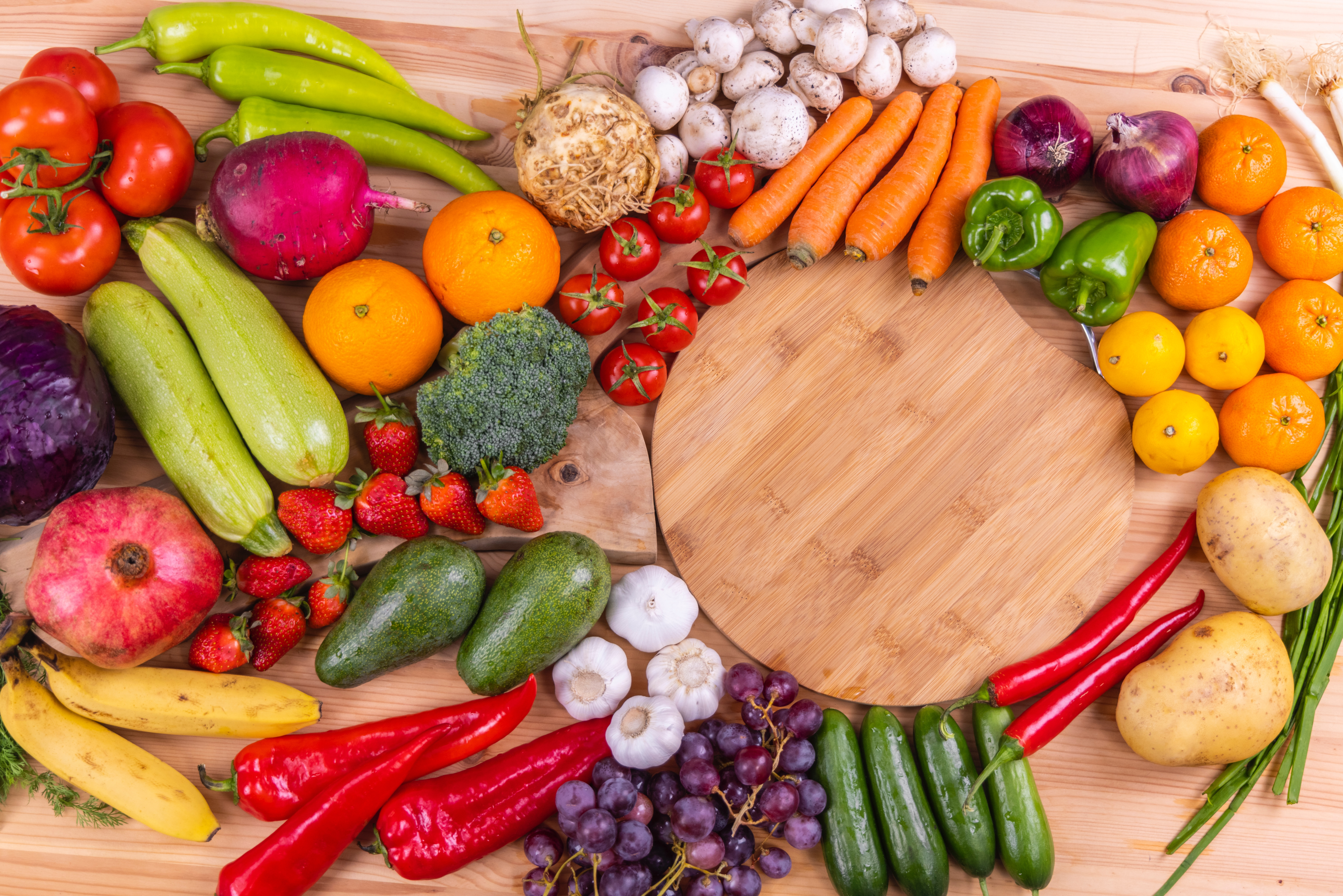
Photo by engin akyurt on Unsplash
Fruits and vegetables are rich in antioxidants and phytochemicals that combat oxidative stress and inflammation. For instance, leafy greens contain vitamin K and several important flavonoids, while berries offer a wealth of antioxidants such as anthocyanins. Specific items like cherries are praised for their anti-inflammatory properties, and the Anti-Inflammatory Diet: What To Eat (and Avoid) highlights the importance of these foods.
- Leafy Greens: Kale, spinach, and Swiss chard are high in vitamins and minerals.
- Berries: Blueberries, strawberries, and raspberries provide antioxidants.
Whole Grains
Whole grains, unlike refined grains, retain all nutritious parts of the grain, providing fiber, vitamins, and minerals. The fiber in whole grains helps reduce inflammation by promoting healthy gut bacteria. Grains such as quinoa not only offer fiber but also a complete protein profile essential for vegans.
- Quinoa: A gluten-free grain that is also a complete protein.
- Brown Rice: Offers beneficial fiber and selenium.
Legumes and Beans
Legumes and beans are excellent sources of plant-based protein and have a low glycemic index, which can help moderate blood sugar and curb inflammation. They also provide fiber and other nutrients like iron, which could be particularly important in a vegan diet to support overall health.
- Lentils: Provide protein, iron, and B vitamins.
- Chickpeas: High in protein and a versatile ingredient in vegan cooking.
Nuts and Seeds
Nuts and seeds contribute healthy fats, protein, and anti-inflammatory compounds such as omega-3 fatty acids. For vegans, they are a vital component of the diet, offering essential fatty acids that can often be lacking. Flaxseeds, for example, are an excellent vegan source of alpha-linolenic acid (ALA), a type of plant-based omega-3.
- Walnuts: One of the best plant-based sources of omega-3 fatty acids.
- Flaxseeds: Rich in ALA and lignans, which have been associated with reduced inflammation.
Foods to Avoid on a Vegan Anti-Inflammatory Diet
Adopting a vegan anti-inflammatory diet involves not just choosing the right foods to eat but also being vigilant about avoiding certain types of foods. These typically include items that can provoke inflammatory responses in the body or jeopardize overall health.

Processed Foods
Processed foods and processed meat are often loaded with additives, preservatives, and other artificial ingredients that can exacerbate inflammation. Vegans should particularly steer clear of:
- Refined carbohydrates like white bread and pastries
- Snack foods such as chips and crackers
- Meat substitutes that are highly processed
Sugar and Artificial Sweeteners
Foods with a high glycemic index, like sugar-sweetened beverages and candies, can trigger inflammatory processes. Additionally, artificial sweeteners may negatively impact gut health. One should limit:
- Sodas and sweetened drinks
- Heapings of table sugar
- Products containing high-fructose corn syrup
Unhealthy Fats
Trans fats and saturated fats found in some plant-based foods can be pro-inflammatory. Avoiding these unhealthy fats is crucial for an anti-inflammatory diet. Key items to avoid include:
- Hydrogenated oils found in certain margarines and fried foods
- Coconut oil due to its high saturated fat content
- Excessive use of any oils, even if they are considered healthier options
Sample Meal Plan for a Vegan Anti-Inflammatory Diet
A vegan anti-inflammatory diet emphasizes whole foods rich in phytonutrients and avoids ingredients that may cause inflammation. Below are daily meal ideas to help structure a balanced diet that aligns with anti-inflammatory principles.
Breakfast Ideas
- Vegan Pancakes: A stack of fluffy pancakes made with whole grain flour and topped with a tablespoon of pure maple syrup and a cup of fresh blueberries for antioxidants. Vegan Pancakes with Blueberries.
- Berry Smoothie Bowl: Blend frozen mixed berries with a banana, a spoonful of flaxseeds, and unsweetened almond milk. Garnish with chia seeds.
Lunch Ideas
- Vegetable Soup: Slow-cooked hearty vegetable soup seasoned with turmeric, garnished with a tablespoon of nutritional yeast, and served with a slice of crusty whole-grain bread. Slow-Cooker Vegetable Soup.
- Quinoa Salad: A colorful salad with cooked quinoa, chopped kale, diced red bell peppers, and a lemon-tahini dressing.
Dinner Ideas
- Stir-Fried Tofu and Vegetables: Tofu stir-fried with a variety of colorful vegetables such as broccoli and carrots, served with brown rice and seasoned with ginger.
- Lentil Stew: A savory stew made with lentils, diced tomatoes, spinach, and aromatic herbs like rosemary and thyme, perfect when served over a bed of whole-grain pasta.
Snacks and Desserts
- Mango-Date Energy Bites: Small, no-bake bites made of blended dates, dried mango, and rolled oats, rolled in coconut flakes for extra flavor. Mango-Date Energy Bites.
- Fruit Salad: A refreshing mix of seasonal fruits drizzled with lime juice and a sprinkle of chopped mint leaves.
Tips for Transitioning to an Anti-Inflammatory Vegan Diet
Video Credit: Vegan Michele
Transitioning to an anti-inflammatory vegan diet involves focusing on plant-based foods that help reduce inflammation in the body. Here are some practical steps one can take:
Start with Whole Foods: A diet rich in whole foods provides vital nutrients that can help fight inflammation. One should incorporate fresh fruits, vegetables, and whole grains, and aim to eat foods in their least processed form.
Incorporate Anti-Inflammatory Staples: Certain foods, like berries, leafy greens, and nuts, are known for their anti-inflammatory properties. Including a variety of these in one’s daily intake can contribute significantly to reducing inflammation.
Monitor Fat Intake: While fats are essential, focusing on the type of fats one consumes is important. Opting for monounsaturated fats and omega-3 fatty acids over saturated fats helps to support an anti-inflammatory diet.
Cut Out Refined Sugars and Processed Foods: Sugary drinks and snacks, as well as heavily processed foods, can increase inflammation. One must be mindful of food labels and limit the intake of these products. Plan Meals: Preparing a meal plan ensures a balanced intake of nutrients. The inclusion of various nuts, seeds, legumes, and vegetables in one’s meals can provide a range of beneficial phytochemicals and fibers.
Stay Hydrated: Proper hydration aids in maintaining body functions and reducing inflammation. Individuals should drink ample water throughout the day.
The path to adopting an anti-inflammatory vegan diet doesn’t have to be overwhelming. By making gradual changes and being conscious of the nutritional value of food, individuals can successfully embrace this healthful way of eating.
Monitoring Your Dietary Choices
Successful adherence to an anti-inflammatory diet for vegans involves consistent monitoring of food intake to ensure it meets nutritional requirements and avoids inflammatory agents. This is particularly important as vegans need to be mindful of both macro and micronutrient balance while avoiding animal products.
Using Food Diaries
Keeping a food diary can provide insightful data on one’s eating habits, making it easier to identify any shortcomings or excesses. Individuals may track:
- Daily meals: Listing breakfast, lunch, dinner, and snacks.
- Portion sizes: Quantifying amounts to help with calorie control.
- Nutrient intake: Ensuring a balance of protein, fats, carbohydrates, and fiber.
This information can then inform necessary adjustments to maintain a balanced and effective vegan anti-inflammatory diet.
Inflammatory Markers and Health Indicators
One’s diet should be tuned to not only support general well-being and weight gain but also to minimize inflammation markers. Some of the specific health indicators that can be monitored include:
- C-reactive protein (CRP): A blood test can determine CRP levels, which are indicative of inflammation.
- Body mass index (BMI): Maintaining a healthy weight is often associated with lower inflammation.
Regular check-ups that include blood pressure, cholesterol levels, and glucose levels provide a comprehensive view of how well one’s anti-inflammatory diet aligns with their overall health goals.
Supplementation for Nutrient Gaps
Video Credits: Dr Fuhrman
Vegans pursuing an anti-inflammatory diet must be proactive in supplementing key nutrients that may be lacking in a plant-based diet. Integrating the right supplements helps to fill any nutritional gaps, ensuring a well-rounded intake for optimal health.
Vitamin B12
Vitamin B12 is crucial for nerve function, brain health, and the production of DNA and red blood cells. As it is not typically found in plant foods unless they are fortified, vegans should consider a supplement or consuming foods fortified with B12 to meet their daily requirements.
Vitamin D
Vitamin D plays a significant role in bone health and immune function. Plant-based sources are limited, especially for the D3 form preferred by the human body. Vegans should consider a vitamin D supplement, especially those living in areas with limited sunlight exposure.
Algae-Based Omega-3s
Long-chain omega-3 fatty acids, such as EPA and DHA, are important for cardiovascular, brain, and inflammatory health. They are found primarily in fish, but vegans can opt for algae-based supplements which provide a direct source of these essential nutrients.
Iron
Iron is vital for transporting oxygen throughout the body, but the non-heme iron found in plants is less readily absorbed. Vegans should focus on iron-rich foods and may consider an iron supplement. Consuming vitamin C-rich foods at the same time can enhance absorption.
Understanding Food and Body Interaction
When individuals adopt a vegan and vegetarian diet or diet, it is essential to recognize how specific foods can influence inflammation within the body. Inflammation is the body’s protective response to injury or damage, and it plays a crucial role in healing. However, chronic inflammation can contribute to various diseases, including heart disease and arthritis. Thus, an anti-inflammatory diet aims to reduce this persistent inflammation. Foods included in a vegan anti-inflammatory diet typically consist of:
- Whole grains: such as brown rice and quinoa, provide essential fibers.
- Legumes: including lentils, chickpeas, and beans, offer plant-based proteins and nutrients.
- Nuts and seeds: like almonds, flaxseeds, and chia seeds, are excellent sources of healthy fats and omega-3 fatty acids.
- Fruits and vegetables: particularly leafy greens and berries, are high in antioxidants and vitamins.
Conversely, foods known to exacerbate inflammation are minimized or excluded, which include:
- Processed foods
- Sugary beverages
- Excessive salt intake
Opting for a vegan diet for its anti-inflammatory advantages requires attention to macronutrient balance (carbs, proteins, fats) and the significance of micronutrients like vitamins and minerals. Through a diverse selection of nutrient-rich foods, vegans can skillfully address inflammation, fostering long-term health.
Important Considerations for Food Allergies and Sensitivities
Video Credits: Dr. Jin W. Sung
When adopting an anti-inflammatory diet, those with food allergies and sensitivities need to navigate their nutritional choices with care. It’s vital to identify and eliminate foods that trigger adverse reactions. For vegans with food allergies, this often means finding suitable plant-based alternatives that do not compromise the anti-inflammatory benefits of their diet.
Key Steps in Managing Allergies and Sensitivities
- Identification: Keep a detailed food diary to track what you eat and any symptoms that follow. This can help in pinpointing potential allergens.
- Elimination: Once a food allergen is suspected, it should be completely removed from the diet and then possibly reintroduced carefully under medical supervision to confirm the allergy.
Nutritional Balance
- Substitutions: Replace allergenic foods with nutritious alternatives. For example, soy protein can often be substituted with hemp or pea protein, which are less likely to cause allergic reactions.
- Supplementation: Certain nutrients might be lacking due to the elimination of allergenic foods. For instance, if nuts are a trigger, one must ensure to get omega-3 fatty acids from other sources like flaxseeds or algae-based supplements.
Seek Professional Advice
- Medical Consultation: Always consult with healthcare providers for food allergy testing and management.
- Dietitian Support: A registered dietitian specializing in plant-based nutrition can provide personalized advice to ensure dietary adequacy without triggering allergies.
Interpreting Symptoms
- Symptom Tracking: Symptoms of food sensitivities can be subtle and delayed. Regular monitoring is essential.
- Professional Interpretation: A healthcare professional can help discern between a food sensitivity and other digestive issues, such as irritable bowel syndrome (IBS).
Avoiding common allergens like dairy or eggs is inherent in a vegan anti inflammatory diet plan, but vigilance is still necessary, especially with nuts, soy, and gluten, which are prominent in vegan and anti-inflammatory recipes. Through careful planning and professional guidance, one can maintain a balanced and healthful vegan diet that respects their allergy and sensitivity needs.
What Is the Anti-Inflammatory Diet: Thriving with Vegan Living

In summary, the anti-inflammatory vegan diet offers more than a dietary approach—it’s a pathway to optimal well-being. By prioritizing nutrient-dense plant-based foods, we not only aim to reduce inflammation but also unlock a spectrum of health benefits.
This lifestyle encourages us to savor whole foods, steering clear of processed options and embracing the simplicity of fruits, vegetables, legumes, nuts, and seeds. Beyond managing conditions like arthritis and heart disease, it’s a celebration of vibrant, flavorful, and nourishing choices.
So, let’s continue thriving with the richness of an anti-inflammatory vegan diet—a journey devoted to holistic wellness, one mindful bite at a time.
Frequently Asked Questions on What Is the Anti-Inflammatory Diet
When adopting an anti-inflammatory vegan diet, individuals often have queries about meal options and managing inflammation through plant-based choices. Here, we address common questions to assist in maintaining a healthy, anti-inflammatory vegan lifestyle.
What Types of Breakfast Options Are Considered Anti-Inflammatory for a Vegan Diet?
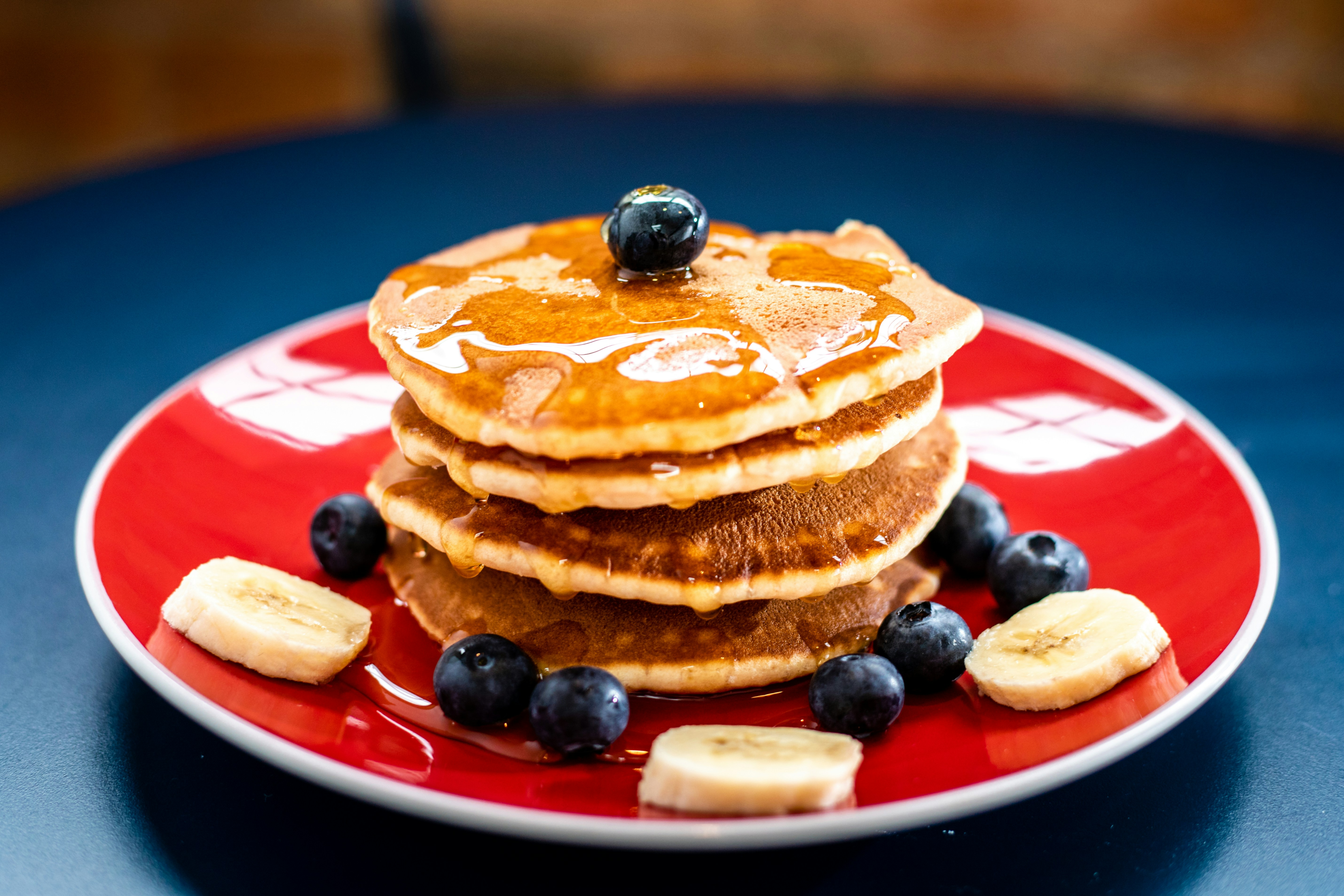
For breakfast, a vegan should consider foods like whole grain pancakes with a topping of blueberries. Blueberries are heralded for their high antioxidant content which combats inflammation. A breakfast option might include vegan pancakes complemented by fruits such as mango or dates, known for their nutrient density and inflammation-fighting potential.
Which Foods Should Be Avoided Due to Their Inflammatory Properties When Following a Vegan Diet?
Individuals should generally avoid processed foods, refined sugars, and excessive intake of omega-6 fatty acids, often found in both processed meats and vegetable oils. These can contribute to inflammation and are not aligned with an anti-inflammatory diet’s principles.
How Can a Vegan Diet Support Gut Health and Reduce Inflammation?
A vegan diet rich in whole foods provides fiber which fosters a healthy gut microbiome, crucial for inflammation regulation. Consuming fermented foods such as sauerkraut or kimchi, along with a variety of fruits, vegetables, nuts, and seeds, offers the gut the nutrients it needs to maintain balance and support overall health.
Can an Anti-Inflammatory Vegan Diet Be Affordable and What Are Some Budget-Friendly Meal Planning Tips?
An anti-inflammatory vegan diet can certainly be affordable. Planning meals around seasonal produce, legumes fatty fish, and bulk whole grains can minimize costs. Tips for cost-saving include buying in bulk, prioritizing nutrient-dense but low-cost foods, and preparing meals at home.
What Fruits Are Known to Have the Best Anti-Inflammatory Effects?
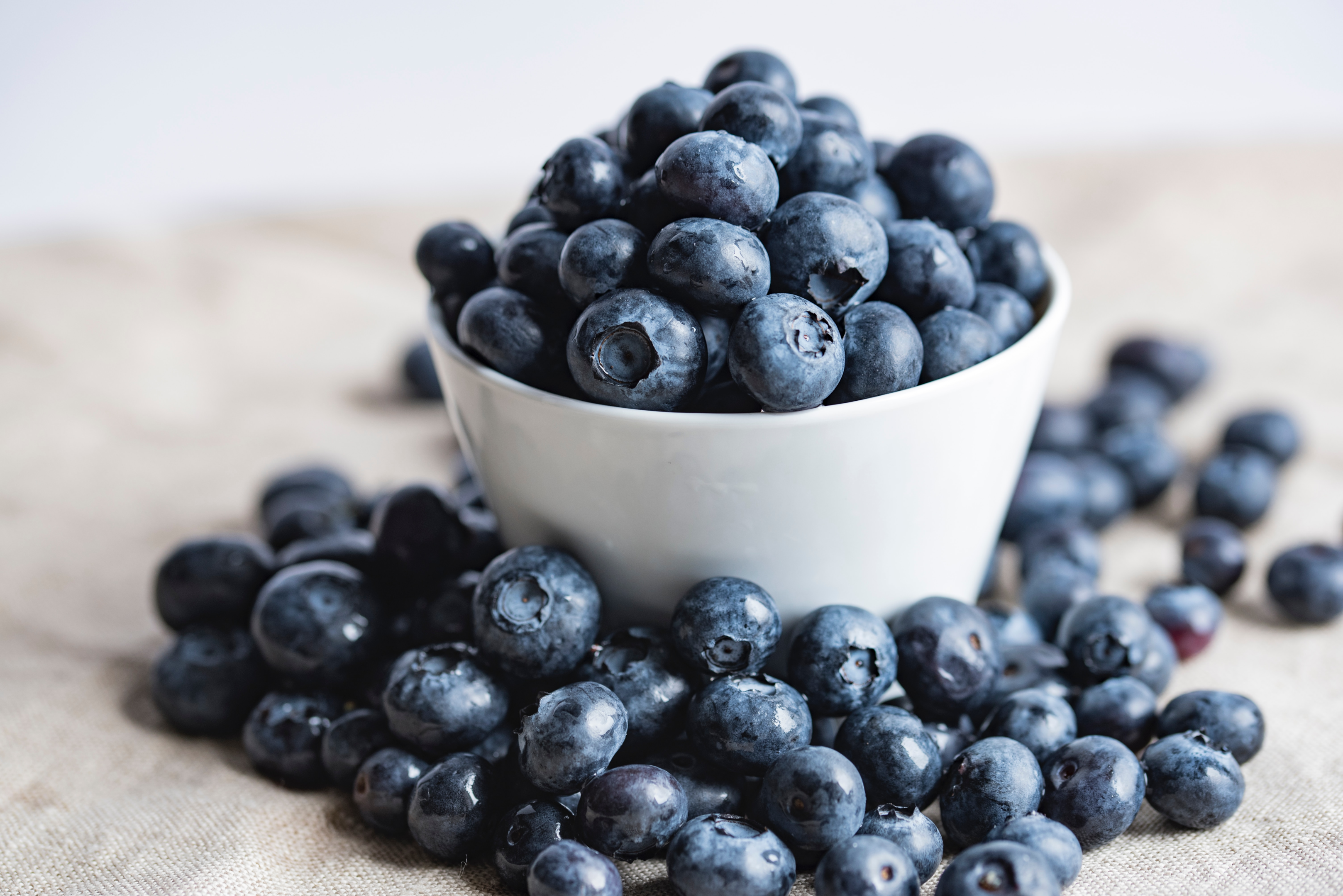
Photo by Joanna Kosinska on Unsplash
Fruits such as berries (blueberries, strawberries, and blackberries), cherries, and oranges are famous for their anti-inflammatory properties due to their high antioxidant content. They are essential components of a vegan anti-inflammatory diet.
How Does One Effectively Structure a Short-Term Vegan Anti-Inflammatory Meal Plan?
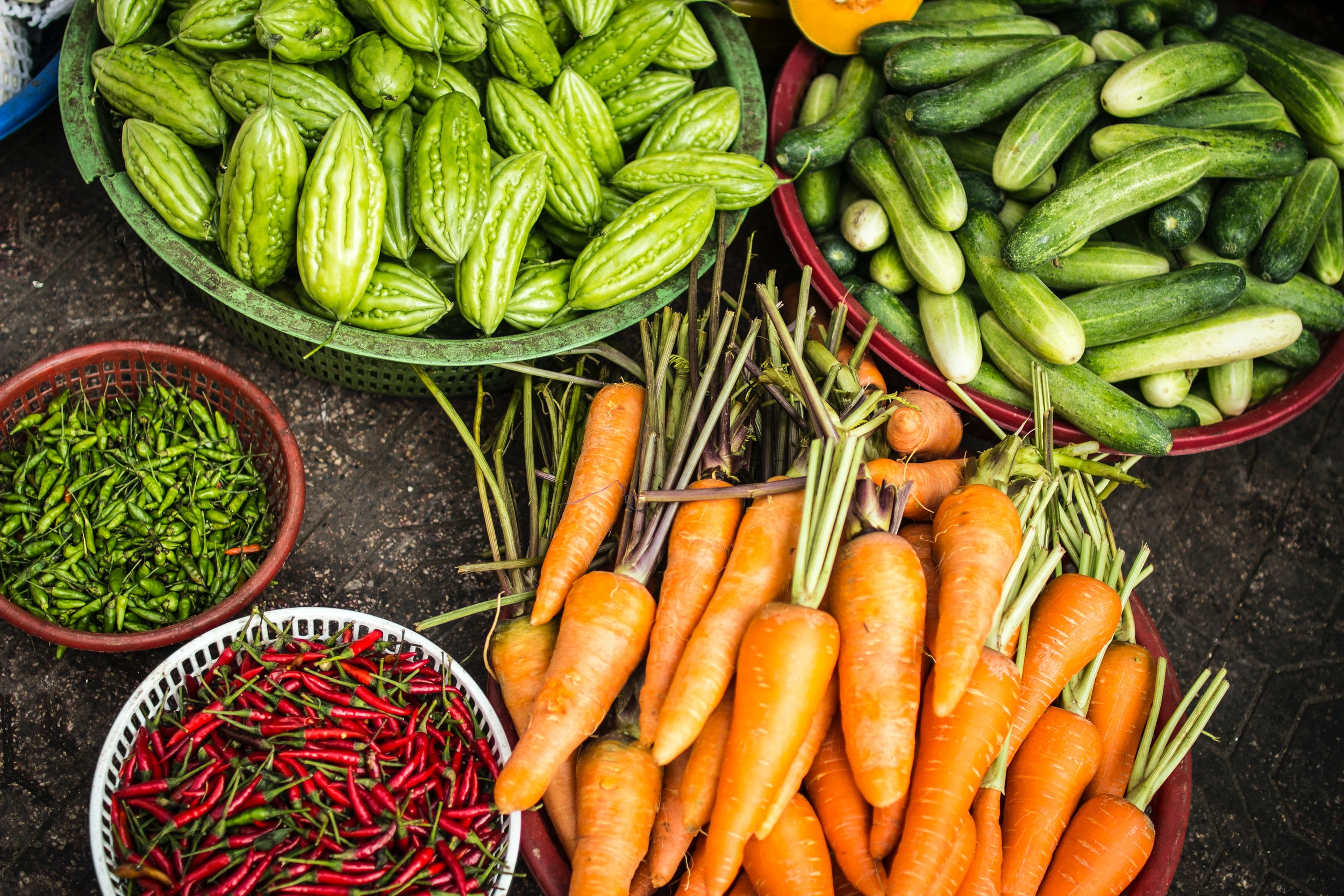
Photo by Megan Thomas on Unsplash
A short-term meal plan should include a diverse range of whole foods, emphasizing fruits, vegetables, whole grains, nuts, and seeds. Starting the day with a nutrient-packed breakfast, followed by balanced meals throughout the day with snacks like energy bites can help maintain steady energy levels and manage inflammation.
Follow Our Socials
Discover the awesome world of VeganGlobetrotter!
We’ve got cool stuff on different social media apps. Check out tasty recipes and travel tips on Instagram. Talk about interesting things and make friends on Twitter. Watch fun videos and learn cool stuff on YouTube. Hang out with us on Facebook for a friendly community and cool ideas. It doesn’t matter if you’re new to being vegan or you’ve been doing it for a while.
VeganGlobetrotter’s social media has something for everyone who likes yummy food and cares about the planet. Follow us on all the apps for a super fun and easy way to be vegan!
#VeganGlobetrotter #YummyVeganLife
Related Articles on What is the Anti Inflammatory Diet

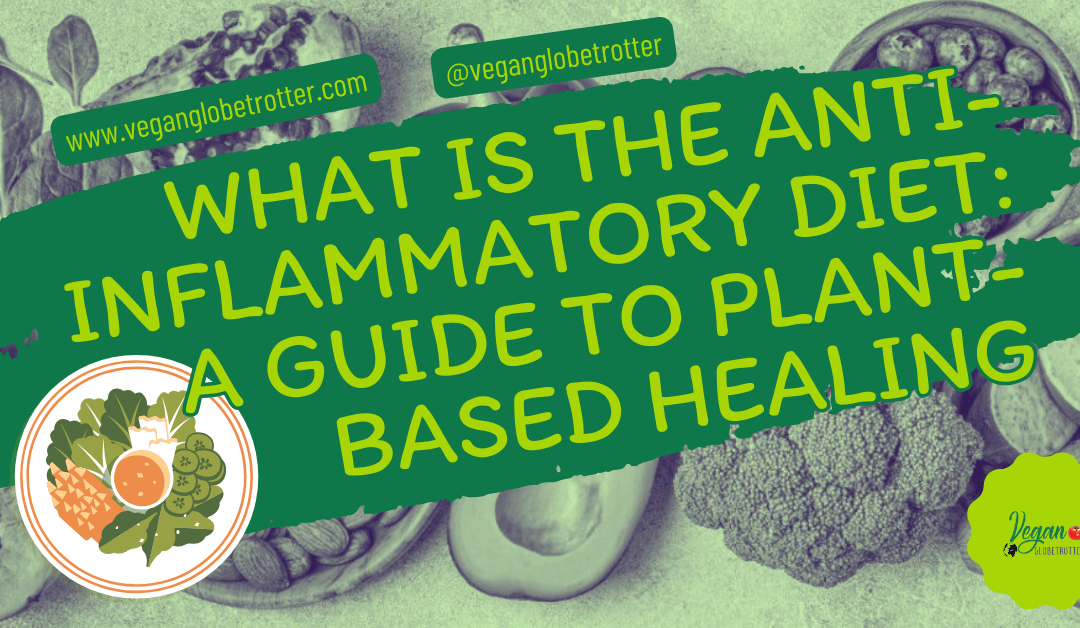



Don't miss out
when new recipes and information are added!
Join our newsletter for free recipes,
healthy living inspiration, and special offers
You have Successfully Subscribed!